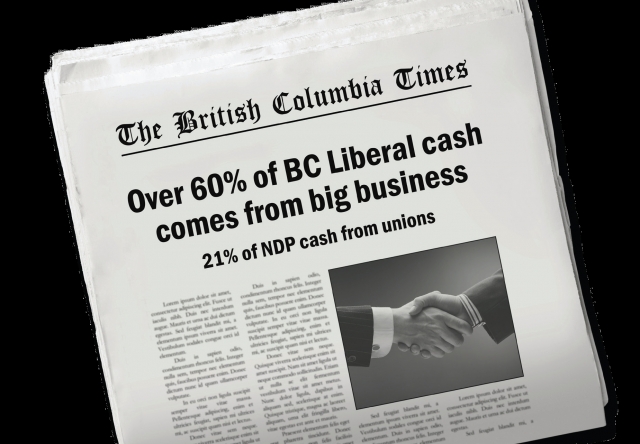COMMENT: B.C.'s polarized political climate turning voters off
With MLAs back in their seats this week, it’s a good time to remind B.C.’s political leaders that a “trust deficit” has broken out between British Columbians and their elected officials.
Last week’s Ipsos Reid poll had some startling numbers in it: not a single party leader polled better than their party on the question of who would make the best Premier for B.C.: not Christy Clark, not Adrian Dix, not John Cummins, not Jane Sterk.
Nearly one out of three decided voters couldn’t even decide who would make the best Premier.
Flip the coin and what Ipsos Reid’s results are actually saying is that more voters will vote for each party in spite of the leader that leads it.
In last summer’s HST referendum barely one out of two voters bothered to return their ballot, despite a multi-million dollar campaign encouraging them to do so. Put another way: just a little more than one out of every four eligible voters decided the HST’s fate and its accompanying $1.6 billion cancellation fee.
And chances are that whoever forms the next B.C. government will do so with the support of no more than one out of four voters as well. And some of those voters will likely be holding their nose as they cast their vote.
When half of the province doesn’t bother to vote, something’s not right in Victoria. When two-thirds of British Columbians don’t bother to vote in local elections, something’s not right at city hall. And whatever it is, it’s not healthy for democracy.
Part of the cause may be that B.C. voters are increasingly turned-off by a political system that has become a no-holds-barred combat pitting the barbarians at the gate versus the socialist hordes.
Choosing a side is more important than deciding what’s best for B.C.
Samara, a Canadian research organization that studies and encourages citizen engagement, recently undertook a series of focus groups to explore why Canadians are opting out of the political process. Their findings should be a wake-up call for B.C.’s political elite.
Three key themes emerged from Samara’s research: Canadians’ dislike for politics seems closely related to a perceived gap between the ideals of democracy and the reality of how people are represented; the less engaged don’t feel that they have a voice in the system; and many opt out because of their experiences with elected representatives or public sector employees.
Sound familiar?
But participants in Samara’s focus groups also had a few ideas to share about narrowing the apathy gap: democracy must be responsive and citizens must have the capacity to hold politicians to account; it must be inclusive allowing different voices to be heard; and the system must provide opportunities for the public to engage.
Our elected representatives, beginning with the party leaders need to heed these ideas and start appealing to the best in voters, instead of focusing on the worst in their opponents.
With a none too subtle wink from their political bosses, strategists for B.C.’s various parties are far too busy trying to morph into Karl Rove wannabes with attack ads, websites and blogs on both real and imaginary opponents.
But websites such as canttrustcummins.ca and cantafforddix.ca or videos such as “Christy Crunch” aren’t drawing voters into the process or winning their respective party’s much in the way of popularity points. They’re pushing voters away and leaving some pretty ugly wedges in their wake.
Taken together these types of tactics represent the absolute worst in politics and reflect on just how far B.C. politics has deteriorated.
So maybe it’s time for B.C.’s elected representatives to lead by telling their strategists to listen to voters and start putting forward a positive vision for the province in place of those attack ads.
B.C. politicians have a choice: continuing with a system defined by warring marauders or a system defined by good, responsive government. They also have a chance during this session to rise above cheap political theatrics and appeal to the very best in British Columbians.
Who knows they may even find that there are sufficient barbarians and socialists hanging around at the gate who actually agree with each other on policies to some of the fundamental challenges facing B.C. such as public debt, the state of public education, an aging population and our environment to name a few.
Dermod Travis is the executive director of IntegrityBC. www.integritybc.ca
























